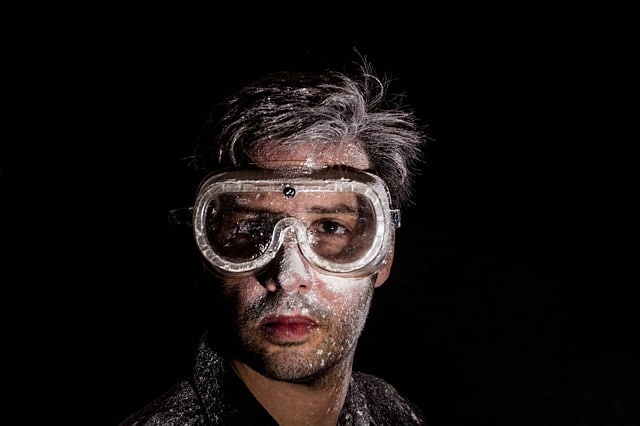
The term "anti-goggles" is a synonym for "glasses"
The first definition of goggles mentioned by the Royal Spanish Academy ( RAE ) in its dictionary refers to glasses . In colloquial language, in this way, glasses can be called goggles .
Optical instruments
Goggles, glasses or spectacles are optical instruments that consist of two lenses, one for each eye. The lenses are placed in a frame whose arch rests on the nose and which also has two temples that hook from the ears.
Thanks to goggles it is possible to compensate for astigmatism , myopia and other vision problems. What lenses do is modify the path of light rays and, therefore, the formation of images in the eye.
Eye protection
In Argentina and Uruguay , indicates the RAE , the notion of goggles specifically refers to glasses used to protect the eyes . In this way it is possible to talk about welder's goggles or diving goggles , to mention two possibilities.
Take the case of goggles or diving masks . In this case, goggles prevent the eyes from coming into direct contact with the water and thus improve vision. Typically, they have a silicone or rubber structure and flat crystals.
There are also safety goggles for general use. These elements protect the eyes from splashes, sparks and dust , for example. If a person must perform a task that could pose a risk to their vision, or is in a potentially dangerous environment, they can wear safety goggles and minimize the inconvenience.
Since the eyes are so delicate, more than most parts of our body, in the workspace we must take special care of them. This is not limited only to factories and chemical laboratories, where the risks are evident, but we must practically make sure to take care of our eyes at all times, because statistics show that eye accidents at work are very frequent .
Goggles for work
Any eye injury is worrying, but especially those that can leave irreparable damage. Companies whose activities put this essential part of our body at risk are obliged to provide goggles to their employees, as well as the latter to use them . Failure to comply with this obligation can have terrible consequences for both parties, both health and monetary. It is estimated that around ninety percent of occupational eye accidents occur due to not using this product.
In the industrial field, the ocular organ is especially exposed to different types of injuries, more than in others. Whether due to the presence of toxic substances that cause damage to the eyes through potential splashes or the chips that are thrown out in different cutting processes, goggles are the ideal barrier to allow the use of sight without putting it at risk. .

In Argentina and Uruguay, "antiparras" means "protective glasses."
In addition to small pieces and drops of harmful liquids, it is necessary to protect the eyes from certain light agents through special filters, both for those who must work with radiation or focus their eyes on incandescent materials. In the case of workers who carry out their tasks outdoors , it is also necessary to take into account the risks inherent to exposure to sunlight, cold and precipitation.
Given that all occupational risks are adequately collected and described in the official standards that companies must comply with, the best way to protect workers is through training . It is not enough to order them to use goggles, but it is important to explain in detail what their benefits are and what the risks of failing to do so are.
